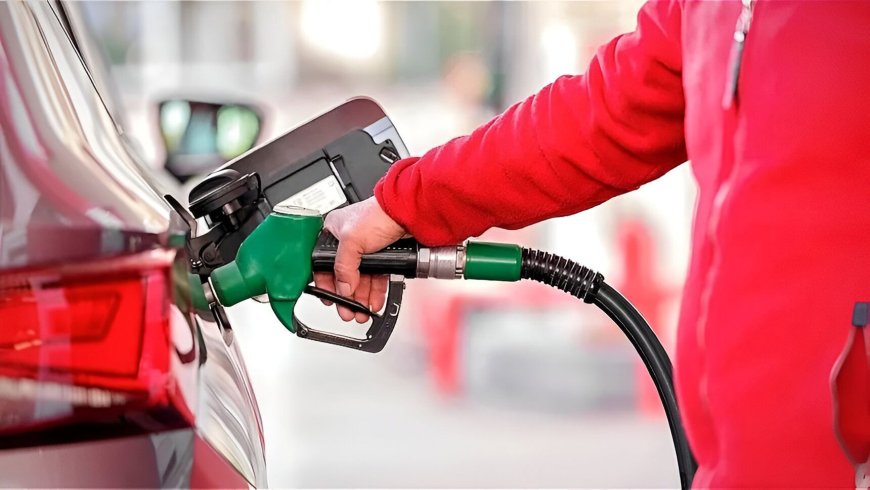E20 Petrol Faces Backlash as Car Owners Report Mileage Decline – Government Issues Clarification
E20 petrol faces criticism over mileage drop; govt defends benefits, citing emission cuts, rural income boost & green energy push.

Introduction
E20 petrol, a blend of 20% ethanol and 80% petrol, was introduced as part of India’s push towards cleaner energy and reduced dependence on fossil fuels. While the initiative aligns with the government’s sustainable energy goals, recent feedback from vehicle owners has sparked controversy. Many car owners claim their mileage has dropped significantly after switching to E20 fuel. The government, in response, has issued clarifications to address these concerns and highlight the potential benefits of the blend.
History of E20 Petrol in India
India’s ethanol blending program began in the early 2000s, starting with E5 and E10 blends. The aim was to cut down on crude oil imports, boost farmer incomes by using sugarcane and maize for ethanol production, and reduce carbon emissions. The E20 initiative, announced under the National Policy on Biofuels 2018, aimed for nationwide rollout by 2025. Several fuel stations in select states started offering E20 from early 2023, with automakers gradually upgrading engines to handle higher ethanol content.
What Happened?
Recently, car owners, especially those with older models not designed for E20, have reported:
-
Mileage drops of up to 10–15%.
-
Engine knocking and rough idling in certain vehicles.
-
Concerns about long-term engine wear due to higher ethanol content.
Social media complaints and automobile forums have amplified these issues, creating public doubts about the new fuel’s efficiency and cost-effectiveness.
Reasons Behind the Mileage Decline
-
Lower Energy Density of Ethanol – Ethanol produces less energy per litre than petrol, meaning more fuel is needed for the same distance.
-
Compatibility Issues – Older engines not calibrated for E20 may suffer efficiency losses.
-
Driving Conditions – Stop-and-go traffic amplifies fuel consumption differences.
-
Fuel System Adjustments – Cars without ethanol-ready fuel systems may face premature component wear.
Government’s Clarification
The Ministry of Petroleum and Natural Gas has stated that:
-
Mileage variations are expected during the transition period.
-
E20-compatible vehicles show minimal performance loss.
-
The shift to E20 will reduce carbon monoxide emissions by 50% and hydrocarbons by 20%.
-
The fuel is safe for all vehicles labeled as E20-ready by manufacturers.
Latest Updates
-
Automakers’ Response: Leading brands are now offering E20-compatible models.
-
Fuel Network Expansion: More fuel stations are being upgraded to store and dispense E20.
-
Public Awareness Drive: Government plans campaigns to educate users about E20 benefits and limitations.
Future Benefits of E20 Petrol
-
Reduced dependence on imported crude oil.
-
Boost to rural economies via increased ethanol production demand.
-
Lower greenhouse gas emissions, helping India meet climate targets.
-
Encouragement for innovation in green automotive technologies.
Key Points
-
Positive: Eco-friendly, boosts rural income, lowers emissions.
-
Negative: Initial mileage drop, incompatibility with older vehicles, higher maintenance costs for some users.
Importance & Significance
E20 petrol is more than just a fuel change—it represents a major policy shift towards sustainable energy. While short-term inconveniences exist, the long-term environmental and economic benefits could outweigh them, provided there’s adequate infrastructure and public adaptation.
Advantages
-
Reduces air pollution.
-
Cuts fuel import bills.
-
Encourages agricultural ethanol production.
-
Creates green jobs.
Disadvantages
-
Mileage decline in non-optimized vehicles.
-
Possible damage to older engines.
-
Need for widespread infrastructure upgrade.
Final Thoughts & Conclusion
The backlash against E20 petrol is a reminder that every green transition needs a balance between environmental goals and consumer convenience. While mileage concerns are valid for some drivers, they are largely tied to engine compatibility and driving patterns. With time, as automakers produce more E20-optimized vehicles and awareness increases, the benefits may outweigh the drawbacks. E20 is a step towards a greener future—though one that requires patience, planning, and cooperation between the government, automakers, and consumers.

 Ellofacts
Ellofacts 





